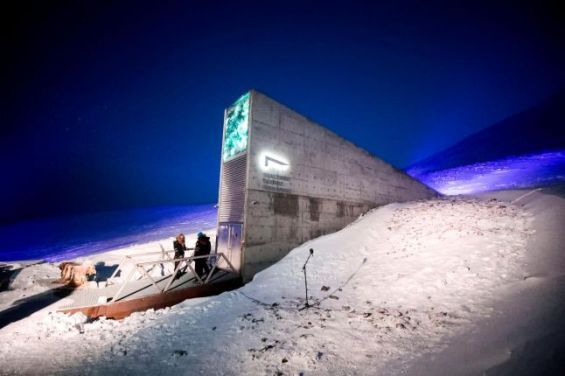In the remote Arctic Svalbard archipelago, a secure seed bank received, Tuesday, hundreds of seed samples from different countries who wish to safeguard diversity. Morocco was one of the countries that made its first deposit at the «doomsday vault» in Norway.
The event, presided by the Norwegian Prime Minister Erna Solberg, saw the addition of 60.000 new seed samples to teh collection, New Scientist wrote.
«The deposit event is especially timely», Solberg said before the event, declaring that in 2020, «countries should have safeguarded the genetic diversity of crops to meet the United Nations goal of eliminating hunger by 2030», the same platform added.
As part of the major deposit, the biggest since the launch of the facility in 2008, Morocco presented its first delivery. Led by the Institut National de la Recherche Agronomique (INRA), the Moroccan deposit included «a number of dry area crops suited to Morocco’s diverse climate», the facility wrote in a document about the new deliveries.
INRA revealed that Morocco’s first delivery «includes coriander, barley, lentils and wheat», adding that «the flora of the Kingdom today consist of more than 7,000 plant species, over 20% of which are native to Northwest Africa».
Although this is Morocco’s first deposit as a country, another body, namely the International Center for Agriculture Research in the Dry Areas (ICARDA), has also deposited seed samples from the North African Kingdom.
The latter was one of the bodies that attended the February 2020 major deposit. It was listed by the «doomsday vault» as one of the attendees that were there to deposit samples from Morocco and Lebanon.
According to the same document, ICARDA has implemented, since its creation in 1977, «research-for-development programs in 50 countries across the world’s dry areas from Morocco in North Africa to Bangladesh in South Asia».
ICARDA also indicated that it is «now in the process of reduplication at new gene banks in Morocco and Lebanon». Furthermore, the same source revealed that the body is «rebuilding the seed collection in Morocco and Lebanon using its duplicate seeds from the Seed Vault».
ICARDA’s new deposit from Morocco and Lebanon «consists of over 9,500 accessions of critical dry area crops, including chickpeas, barley, sweet peas, and durum wheat», the facility reported.
For the record, 36 gene banks from around the world deposited seeds during the same event, allowing the facility to prepare for worst-case scenarios, including global disasters such as a nuclear war, diseases, and the impact of climate change and loss of biodiversity.





 chargement...
chargement...













